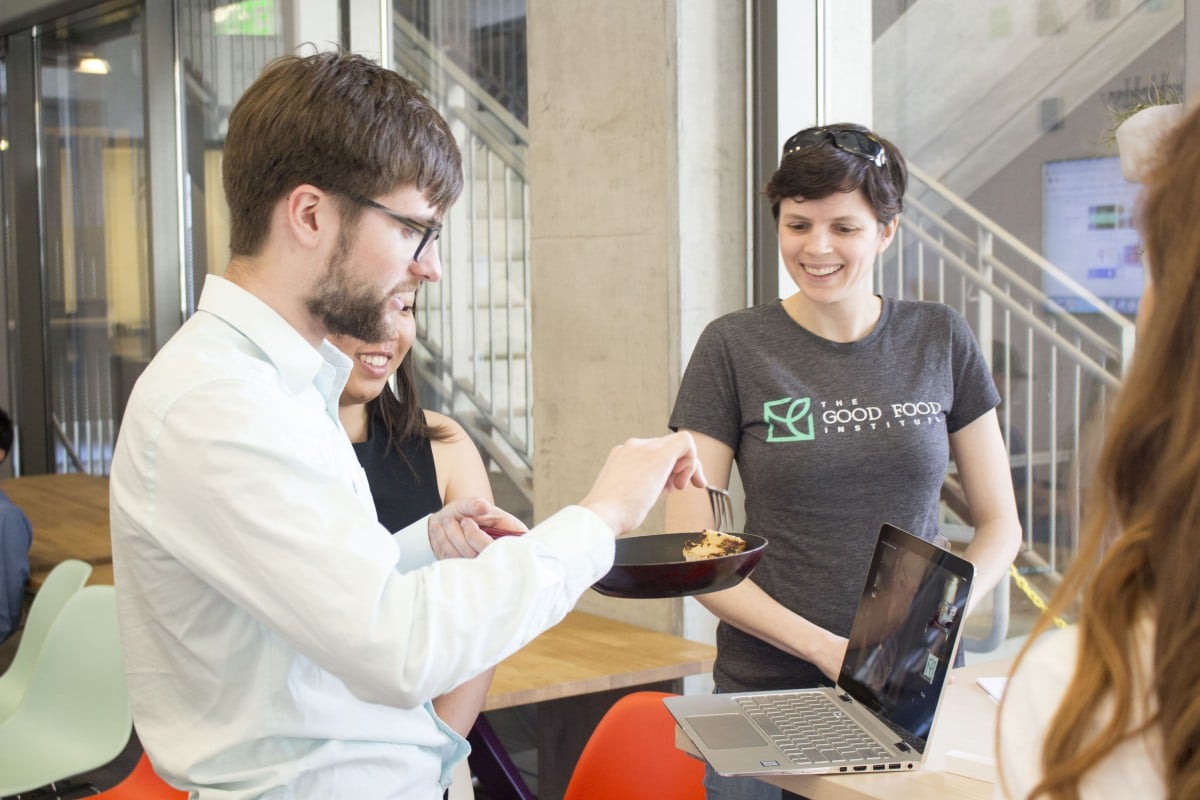Plant meat breakthroughs at Berkeley

The Good Food Institute and the University of California, Berkeley, have joined forces to address the technical problems involved in taking plants and transforming them into products that can replace meat from factory farms on any and all occasions.
This semester’s challenge was to tackle the persistent problem of fat encapsulation, known to most of us as the sizzle when a sausage hits a pan, or the juiciness of a perfectly cooked burger.
Historically, plant-based meats have had a problem incorporating and holding (i.e., “encapsulating” ) fat in the same way that animal meat does. While the health guru in you might think this is a good thing, the person looking for a bacon replacement is going to be disappointed with anything less than the melt-in-your-mouth sensation that only fat can deliver.

By finding novel solutions to the fat problem, the entire plant-based meat industry can create products that better appeal to meat-lovers, and in the process, make meat from industrial animal farms obsolete.
Here’s the skinny (or the fat, I suppose) from the top two teams. Get ready to get technical, food-science fanatics!
And the winner is….
Team adipocapsules
This team put a high-efficiency emulsifier called Q-naturale to work. Q-naturale is a saponin, which is a naturally occurring chemical found in many plants that has special foaming properties. The team used Q-naturale to encapsulate olive and coconut oils, forming capsules composed of a fat-soluble compound called a triterpene, plus a water-soluble carbohydrate chain. The resulting capsules can be dried to produce a powdered fat additive, or even used to make a plant-based butter that taste tests found to be indistinguishable from dairy butter!
A solution that addresses both the plant-based meat and plant-based dairy markets? Not too shabby, students. A++
And the runner-up goes to…
Team structural fat
(no subtlety in that title)
In animal meat, fat is integrated into muscle tissue by embedding adipocytes (fat cells) in a collagen matrix. True to its name, this team contends that it can replicate this structure by mixing fats with phospholipids to encapsulate them, then cross-linking those micelles to a protein scaffold with transglutaminase. The team plans to sell this fat product to plant-based meat companies, both in shelf-stable powdered form and as a refrigerated paste.
New approaches like those taken by the teams at UC-Berkeley this past semester are critical to making our reliance on animals for food a thing of the past. To learn more about GFI’s work to ensure that better alternatives will relegate factory farming to the dustbins of history, read up on what we do!

